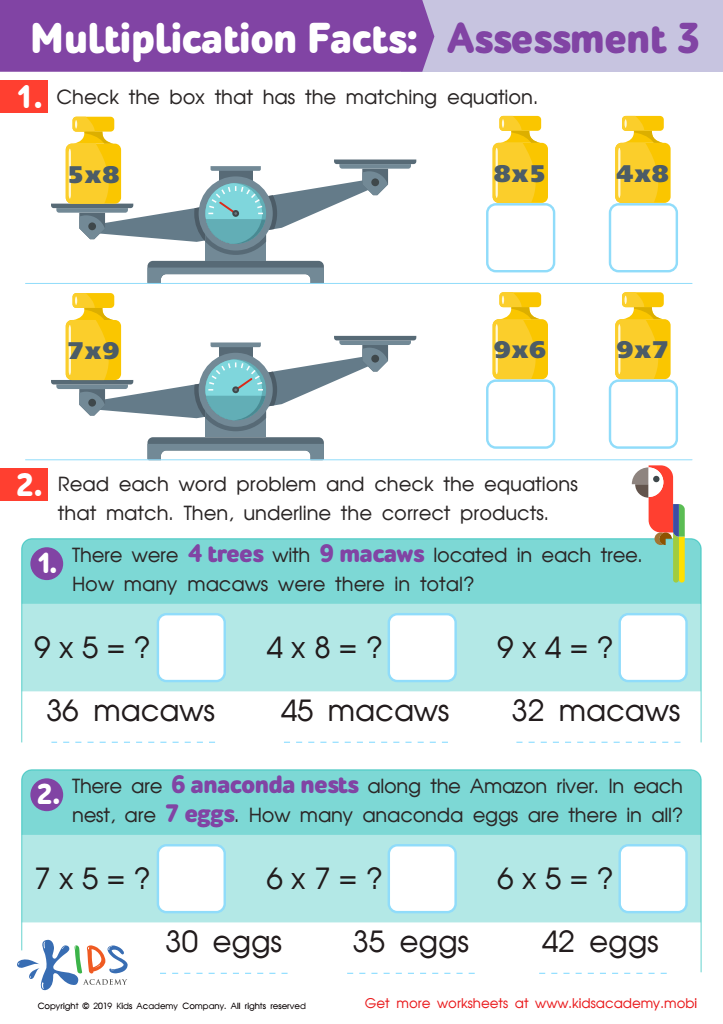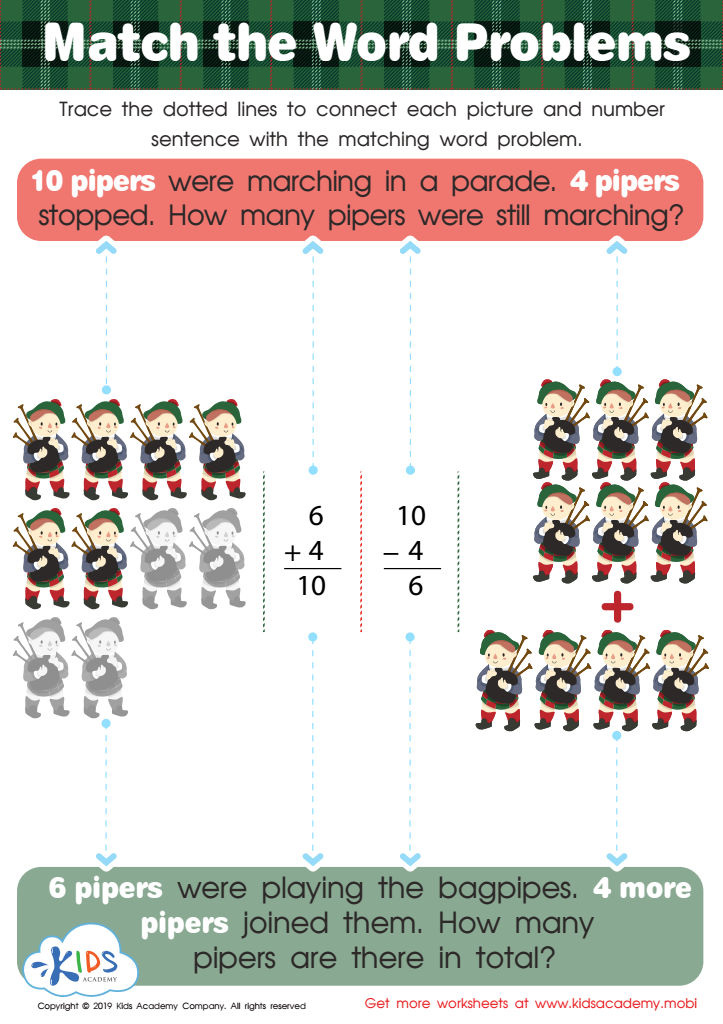Multiplication practice Normal Word Problems Worksheets for Ages 6-8
3 filtered results
-
From - To
Discover our engaging "Multiplication Practice Normal Word Problems Worksheets" designed specifically for children aged 6 to 8. These carefully crafted worksheets provide a fun and interactive way for young learners to master multiplication through relatable, real-life scenarios. Each problem encourages critical thinking and problem-solving skills while making math accessible and enjoyable. With a variety of problems that cater to different ability levels, these worksheets help students build confidence in their multiplication skills. Perfect for classrooms or home study, our printable worksheets offer a perfect blend of challenge and support to foster a love for math in young learners. Start practicing today!


Multiplication Facts: Assessment 3 Worksheet


Enrichment -2 Step Word Problems Worksheet


Match the Word Problems Worksheet
Multiplication practice through normal word problems is crucial for children aged 6-8 as it enhances problem-solving skills and deepens their understanding of mathematical concepts. At this developmental stage, children are beginning to grasp multiplication as a fundamental operation. Engaging with word problems allows them to connect real-world scenarios to mathematical equations, fostering critical thinking and comprehension.
Parents and teachers should care because this practice encourages students to translate everyday situations into mathematical terms. For example, a problem involving sharing snacks among friends helps children better understand multiplication instead of merely memorizing facts. It also motivates them to read carefully, analyze information, and interpret results—all essential skills in academics and daily life.
Additionally, regular practice of word problems builds confidence and lays a strong foundation for advanced mathematics. It helps young learners recognize patterns and relationships between numbers, which are crucial for future topics like division and fractions. By promoting multiplication practice through word problems, parents and teachers support not only math skills but overall cognitive development, preparing children for a lifetime of effective problem-solving and critical thinking. Encouraging this practice ensures children develop a solid mathematical understanding and the confidence essential for their academic journey.
 Assign to My Students
Assign to My Students















